Skin Cancer
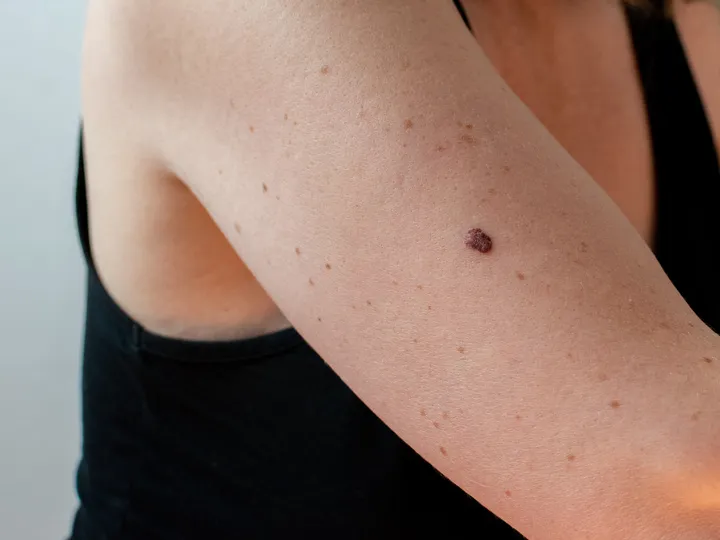
Skin Cancer Detection & Diagnosis
Skin cancer is a condition that usually develops when abnormal skin cells grow uncontrollably because of prolonged sun or tanning bed exposure to ultraviolet (UV) radiation. Common forms of skin cancers include basal cell carcinoma, squamous cell carcinoma, and melanoma, with melanoma being the most aggressive type. A person can suffer from skin cancer anywhere on the body, but it is most common in areas where the body is exposed to the sun, such as the face, neck, and hands, or tanning bed. It is important to treat skin cancer promptly to avoid spreading to other areas of the body, including lymph nodes, which can quickly become life-threatening. Treatment options for skin cancer will depend on the type and stage of the cancer and may include surgical removal, topical medications, and cryotherapy.
Skin cancer may affect any age and all skin types, but it is more common in individuals who experience frequent sun exposure, tanning bed exposure, have fair skin, or have a family history of the condition. When seeking treatment for skin cancer in Northbrook, IL, you can expect a comprehensive evaluation by a dermatologist who will assess the type and stage of the cancer. From then, they will recommend the most appropriate treatment. The treatment process and recovery time can vary, with some cases requiring only minor procedures and others needing more extensive care. If you’re concerned about a suspicious skin lesion or have been diagnosed with skin cancer, consider booking an appointment at Derm Collective North Shore in Northbrook, IL, to explore your treatment options and ensure the best possible care.
Basal Cell Carcinoma (BCC)
Protect Your Health with a Skin Cancer Exam at Derm Collective North Shore.
Your skin is your body’s largest organ and deserves expert care. We provide comprehensive skin cancer exams to detect precancerous lesions and skin cancer early, when treatment is most effective. Regular assessments can often allow for less invasive treatments, reducing the need for surgery and minimizing scarring and downtime. Routine skin checks are crucial for protecting your health and could even save your life. We are dedicated to helping you maintain healthy skin and prevent serious complications. Contact our office to schedule your total body skin exam with one of our board-certified dermatologists.
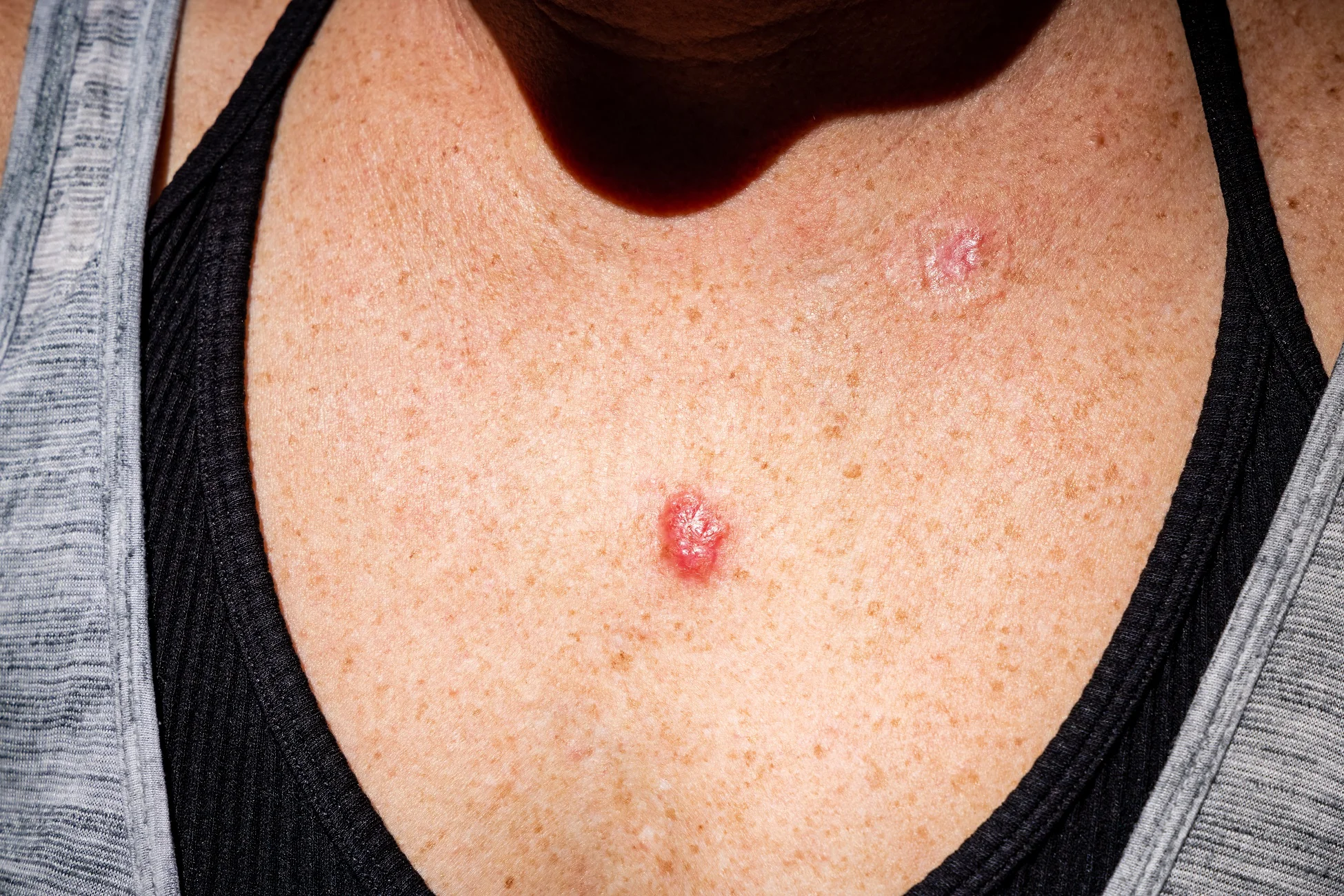
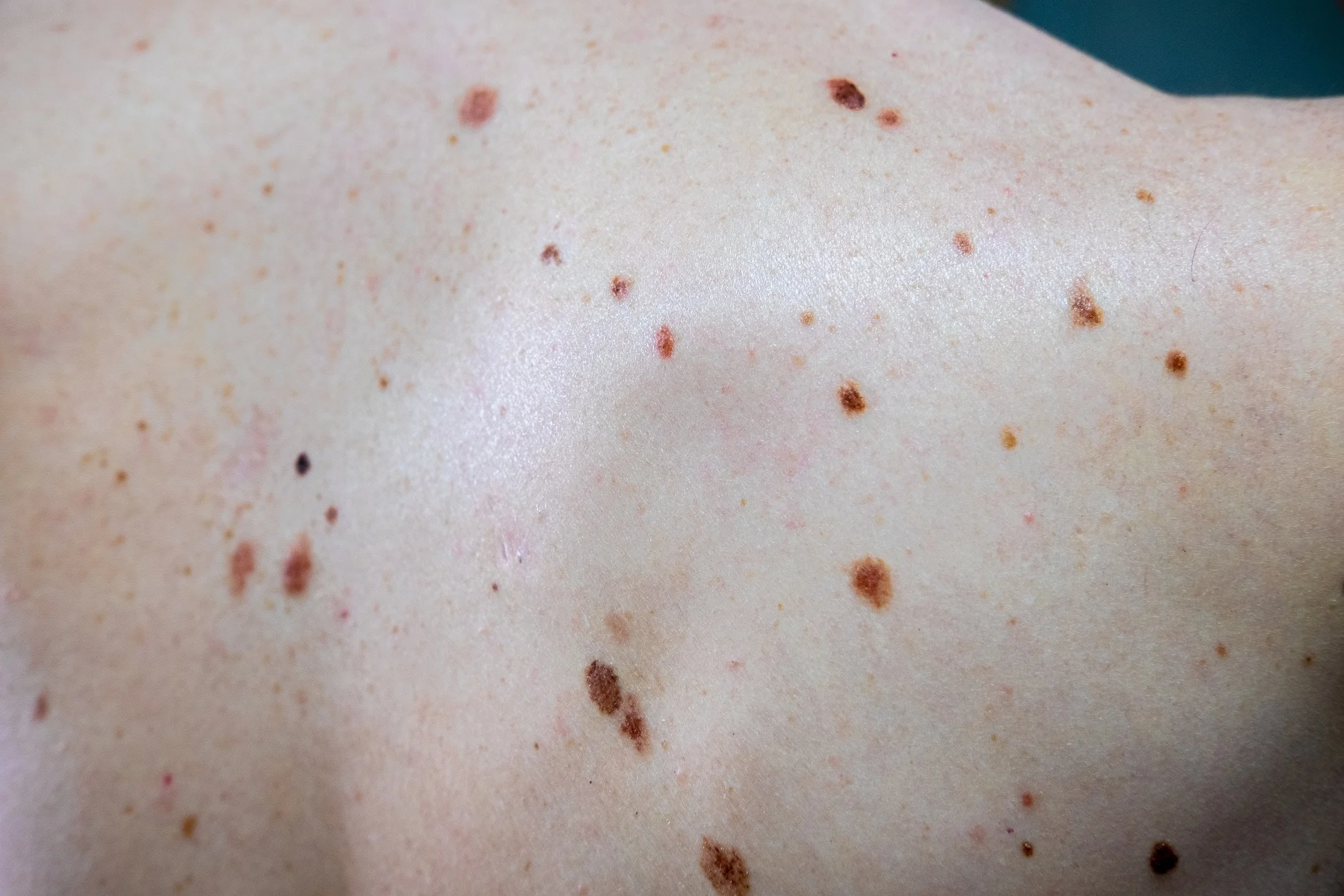
Dysplastic Nevi
Dysplastic nevi are atypical moles that may indicate a risk of developing Melanoma, a serious form of skin cancer. It’s crucial to identify and monitor these moles closely, especially for patients with a family or personal history of Melanoma. Certain types of dysplastic nevi should be completely removed to prevent potential progression to Melanoma, particularly those located in areas that are difficult for the patient to evaluate, like the back. By addressing dysplastic nevi early, we can significantly reduce the risk of Melanoma and ensure better long-term skin health. Regular skin exams and professional evaluations are essential for patients at risk.
Melanoma Detection and Treatment
Melanoma is a life-threatening skin cancer that can spread rapidly throughout the body, including to vital organs like the brain. Early detection of melanoma is of paramount importance, as it is usually treatable if caught in the early stages. If detected late, melanoma may require aggressive treatments like chemotherapy, which come with significant side effects, and surgeries that can leave large scars. Without an early diagnosis, this form of cancer can be fatal. Sun damage from years past can increase the risk of melanoma later in life, as our skin retains a memory of previous harm. Regular total body skin exams with a dermatologist should be incorporated as a consistent routine to catch potential skin cancers early, track changes in moles, and remove suspicious or growing lesions.
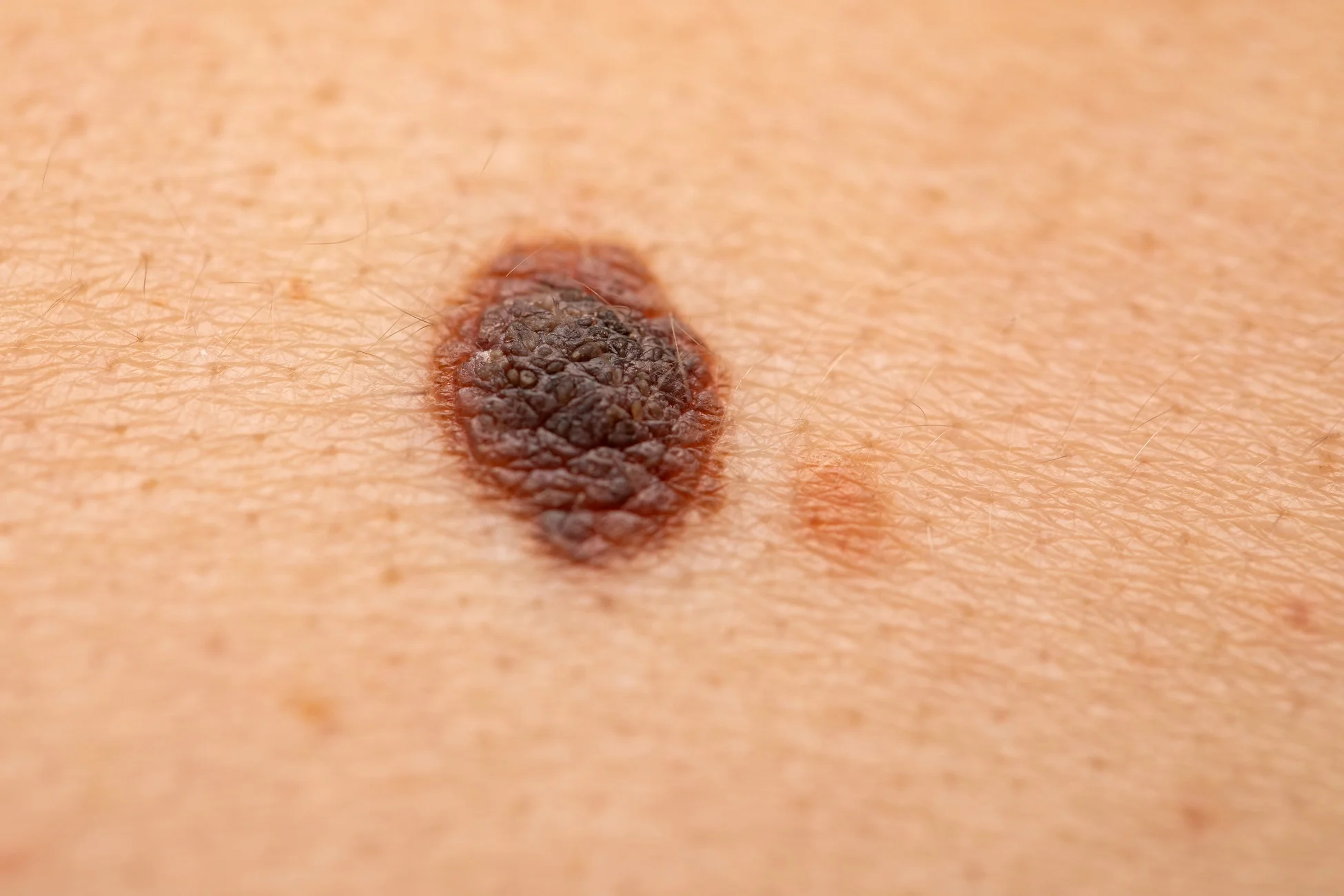
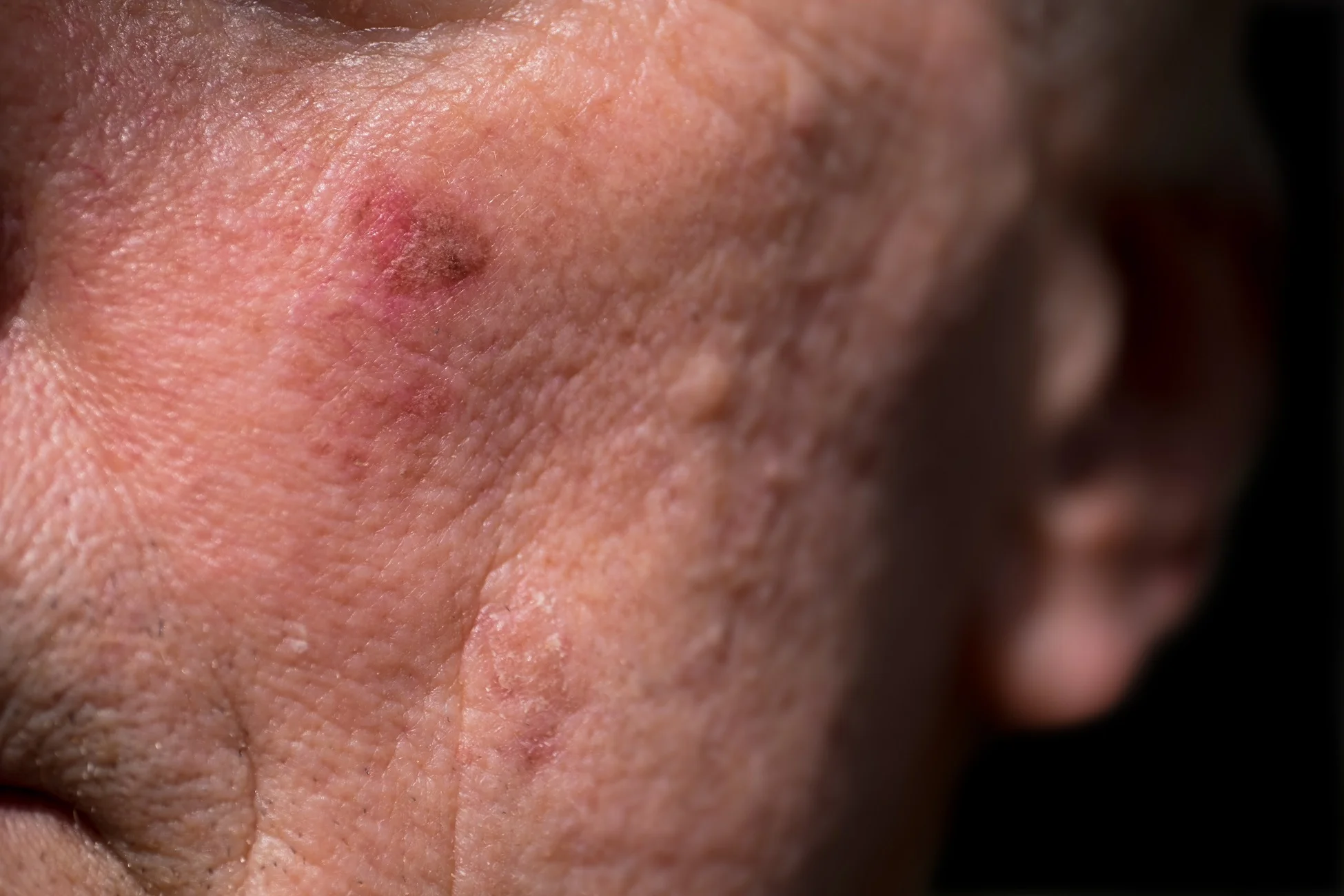
Actinic Keratosis (AK)
Rough, scaly patches on your skin may be actinic keratoses (AK), an early sign of sun damage that could lead to skin cancer in the future. Preventive measures and early treatment are essential for reducing the risk of cancer progression and minimizing the need for invasive procedures. At our dermatology office, we offer quick and easy treatment for actinic keratosis using liquid nitrogen, a procedure that is not only highly effective but also covered by many insurance plans. By addressing actinic keratoses promptly, we help protect your skin’s health. Regular skin checks and early treatment are key to maintaining healthy, cancer-free skin.
Squamous Cell Carcinoma (SCC)
Squamous cell carcinoma (SCC) is an invasive skin cancer primarily caused by prolonged sun exposure. If not promptly treated, SCC can become locally destructive, leading to significant cosmetic and functional impairment. If a severe infection occurs, it can spread to other parts of the body, resulting in serious health risks. Treating squamous cell carcinoma early is crucial, and it can be effectively managed through both surgical and non-surgical interventions. As board-certified dermatologists, we specialize in the precise treatment of SCC, ensuring the best possible outcomes for your health and appearance.
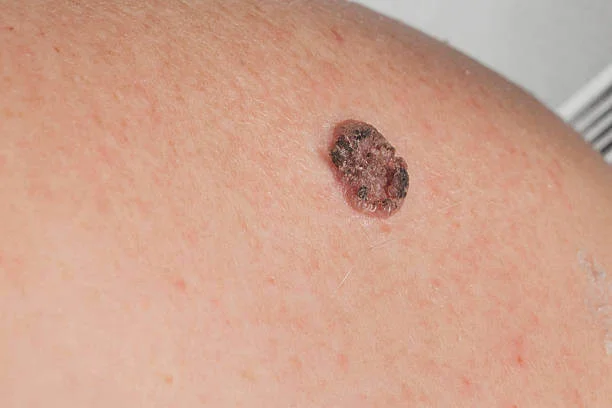
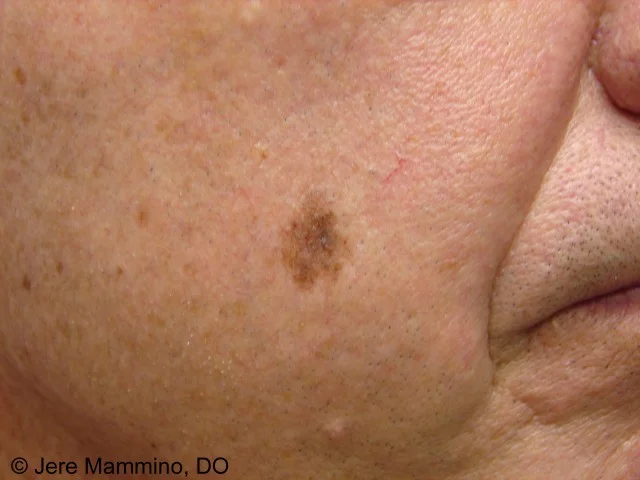
Lentigo Maligna
Lentigo maligna is a slow-growing but dangerous type of Melanoma that typically develops on the face. A subtle appearance makes this Melanoma difficult to diagnose because it is often mistaken for a freckle caused by the sun. Accurate diagnosis requires advanced techniques, including special diagnostic optical instruments, genetic testing, and potentially a surgical biopsy. These procedures are best performed by board-certified dermatologists who have the expertise to identify and treat lentigo maligna effectively. Detection and treatment of this serious skin cancer at an early stage are essential to preventing its progression.
Total Body Skin Exam
Protect Your Health with a Skin Cancer Exam at Derm Collective North Shore.
Your skin is your body’s largest organ and deserves expert care. We provide comprehensive skin cancer exams to detect precancerous lesions and skin cancer early, when treatment is most effective. Regular assessments can often allow for less invasive treatments, reducing the need for surgery and minimizing scarring and downtime. Routine skin checks are crucial for protecting your health and could even save your life. We are dedicated to helping you maintain healthy skin and prevent serious complications. Contact our office to schedule your total body skin exam with one of our board-certified dermatologists.
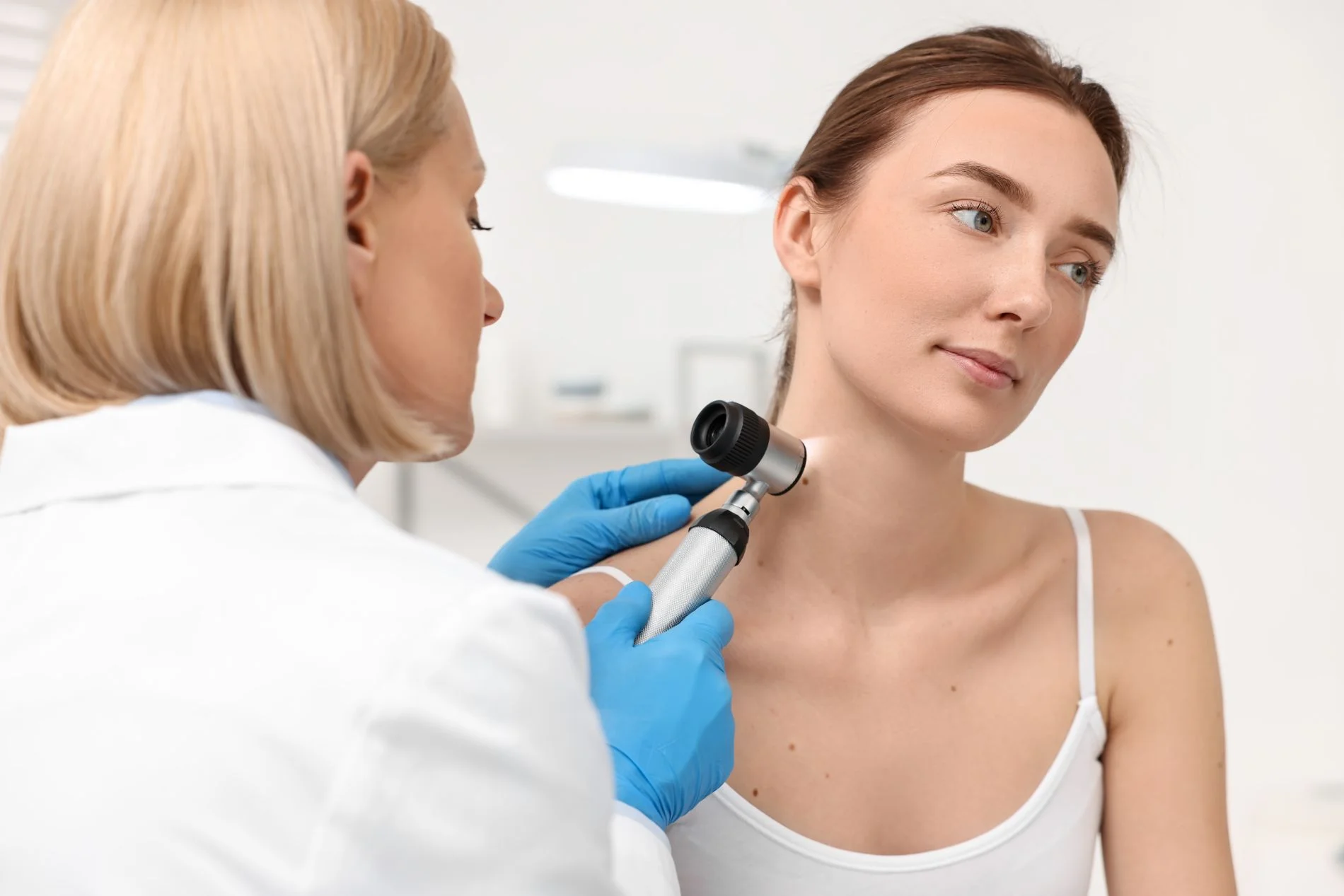
Benefits of Treating Skin Cancer
- Reduces the risk of cancer recurrence
- Minimizes the need for more invasive treatments later
- Improves overall skin health
- Provides peace of mind with early detection and treatment
- Increases survival rates, especially with early treatment
- Enhances appearance by removing unsightly lesions
- Offers non-surgical treatment options
- Supports long-term skin monitoring and care
Faqs About Skin Cancer
How can I tell if a mole or spot might be skin cancer?
You should watch for changes in the shape, color, size, or texture of a mole or spot, as well as any new growths. The ABCDEs of Melanoma—Asymmetry, Border irregularity, Color variation, Diameter larger than a pencil eraser, and Evolving over time—are key signs to monitor. If you notice any of these changes or for peace of mind consult a dermatologist.
Is skin cancer always caused by sun exposure?
The sun’s UV rays and tanning beds are two major risk factors for skin cancer, however skin cancer can also develop in areas that are not exposed to the sun. Genetics, a weakened immune system, and exposure to certain chemicals can also increase risk.
Can skin cancer be completely cured?
It is possible to treat most forms of skin cancer effectively when detected early. However, the success of treatment depends on the type, stage, and location of the cancer, as well as the chosen treatment method. Consistent skin check follow up visits with a dermatologist are critical for anyone diagnosed with skin cancer.
How often should I have my skin checked for skin cancer?
If you have a history of skin cancer or are at higher risk, it is recommended to see a dermatologist every year for a full body skin exam. Regular self-exams are also important for early detection.
What should I expect during a skin cancer screening?
The goal of a skin cancer screening is to examine your skin thoroughly from head to toe for any suspicious moles or lesions. If anything unusual is found, a biopsy might be done to determine whether it is cancerous.
Are there any long-term effects of skin cancer treatment?
The long-term effects depend on the type and extent of the treatment. Some patients may experience scarring or changes in skin texture, but these can often be minimized with proper care. The importance of regular follow-ups cannot be overstated, as they help monitor for any recurrences and manage any side effects.

